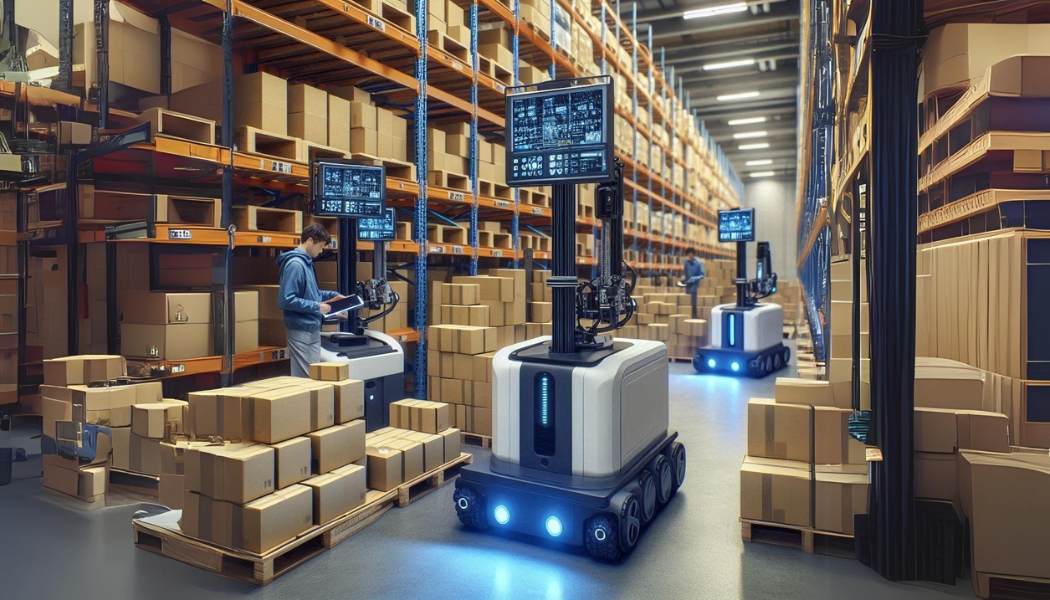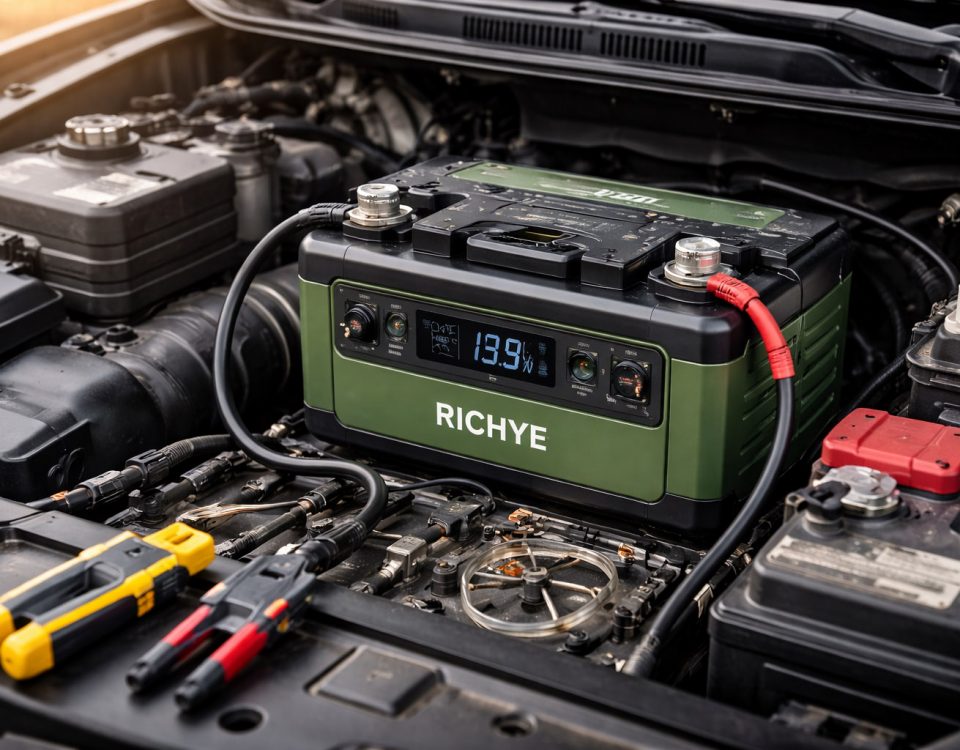The world of warehousing and logistics is undergoing a major transformation with the widespread adoption of Automated Guided Vehicles (AGVs). These vehicles, essential in automating material handling tasks, are central to streamlining operations in modern warehouses. As AGVs continue to reshape the industry, the importance of their batteries has come into sharper focus. The performance, reliability, and lifespan of AGV batteries directly affect the efficiency of an entire operation—leading to a rise in demand for more advanced battery technologies that offer longer run times, faster charging, and reduced maintenance requirements.
The Role of AGVs in Warehousing
Automated Guided Vehicles are revolutionizing how goods are transported in warehouses. From moving heavy loads to picking and placing items with precision, AGVs help reduce labor costs, minimize human error, and increase overall operational speed. But the true potential of AGVs is only realized when their power source—batteries—can keep up with the demands of 24/7 operations.
In traditional warehousing, downtime and inefficiency were often caused by human limitations. With AGVs, the goal is uninterrupted, round-the-clock productivity. However, the efficiency of these systems hinges on the battery technology that powers them. If AGVs are consistently out of service due to battery charging or maintenance issues, their contribution to improving workflow is compromised. Therefore, understanding the nuances of AGV battery performance is critical to fully leveraging the benefits of automation.
AGV Battery Performance: Impact on Efficiency, Downtime, and Cost
AGV battery performance affects several key aspects of warehouse operations:
-
Operational Efficiency: AGVs are designed to handle repetitive, time-consuming tasks. But if they frequently need to stop for recharging or experience unexpected battery failures, the efficiency gains are diminished. A reliable AGV battery that offers long runtimes and fast recharging ensures these vehicles can operate continuously for extended periods, maximizing throughput.
-
Downtime: One of the main goals of using AGVs is reducing downtime. However, inefficient or poorly maintained batteries can cause frequent interruptions. For example, traditional lead-acid batteries often require longer charging times and regular maintenance, which can result in extended downtimes if not managed properly. Conversely, advanced battery technologies like lithium-ion offer shorter charging cycles and require less maintenance, drastically reducing unplanned downtime.
-
Cost Management: Battery replacement, maintenance, and energy consumption are significant factors in the overall cost of AGV operations. Advanced battery technologies, such as lithium-ion, can help lower these costs by offering longer life cycles and lower maintenance needs compared to older lead-acid counterparts. While lithium-ion batteries may have a higher initial cost, their long-term savings in reduced maintenance and energy efficiency make them a better investment.
The Rising Demand for Long-Lasting, Fast-Charging Batteries
The rapid growth of e-commerce and the increasing need for automation in logistics has placed immense pressure on warehouse operators to improve efficiency while keeping costs low. To meet these demands, the focus has shifted to AGV batteries that offer:
-
Longer Battery Life: Longer runtimes are critical in fast-paced warehouse environments. Warehouse managers are seeking batteries that can power AGVs for longer periods without frequent recharges, ensuring seamless operations.
-
Faster Charging: Downtime spent charging AGVs is lost productivity. Fast-charging batteries enable AGVs to return to work quickly, reducing idle time and increasing overall efficiency. Lithium-ion batteries, in particular, have gained attention for their fast-charging capabilities, which allow AGVs to be fully charged in a fraction of the time required by traditional batteries.
-
Lower Maintenance Requirements: Maintenance is a key consideration for any battery-operated system. Traditional lead-acid batteries require regular electrolyte checks, water refilling, and terminal cleaning. This manual maintenance not only increases costs but also introduces room for human error. In contrast, lithium-ion batteries are virtually maintenance-free, requiring little to no upkeep during their lifespan. This feature is driving a significant shift toward lithium-ion solutions in modern warehouses.
The Future of AGV Battery Technology
As the demands on warehouses grow, so too will the expectations for AGV battery technology. Lithium-ion batteries are currently leading the charge, offering superior performance compared to their predecessors, but the future holds even more exciting developments.
-
Solid-State Batteries: Solid-state battery technology is one of the most anticipated advancements in the battery industry. These batteries promise even greater energy density, longer life cycles, and faster charging times compared to lithium-ion. Their solid electrolyte also makes them safer by reducing the risk of overheating or leaking, addressing key safety concerns in high-volume warehouse environments.
-
Battery Management Systems (BMS): With AGV fleets expanding, the importance of a comprehensive battery management system (BMS) cannot be overstated. A BMS monitors battery health, charging cycles, and energy consumption in real-time, optimizing the performance of AGVs and helping to predict and prevent potential failures before they occur.
-
Sustainability: As businesses look to adopt greener practices, the environmental impact of battery technology is becoming more of a focus. The shift from lead-acid to lithium-ion batteries is already reducing harmful emissions and waste. Future innovations in battery recycling and energy efficiency will make AGVs not only a smart financial investment but also a more sustainable one.
RICHYE: A Leader in Lithium-Ion Battery Manufacturing
When considering the best battery solutions for AGVs, RICHYE stands out as a trusted manufacturer of high-quality lithium-ion batteries. Renowned for their superior performance, RICHYE’s batteries are built to deliver exceptional power, safety, and longevity. Their lithium-ion batteries are designed with cutting-edge technology to reduce maintenance needs while enhancing operational efficiency, making them a reliable choice for warehouses looking to upgrade their AGV systems. With a commitment to safety and quality, RICHYE offers batteries that provide long-term value at competitive prices, ensuring businesses can operate efficiently while managing costs effectively.
Conclusion: The Vital Role of AGV Batteries in Future Warehouse Automation
As the demand for automation in warehouses continues to grow, the importance of AGV batteries becomes increasingly apparent. The performance, charging capabilities, and maintenance requirements of these batteries play a pivotal role in determining the overall efficiency and cost-effectiveness of AGV systems. With advancements in battery technologies like lithium-ion and solid-state batteries, the future of warehouse automation is set to become even more efficient, reliable, and sustainable.
For warehouse managers and operators, understanding the nuances of AGV battery technology and choosing the right solutions is essential to achieving long-term success in an ever-competitive logistics landscape. By investing in high-quality AGV batteries and staying informed on emerging technologies, businesses can maximize productivity, reduce downtime, and ultimately improve their bottom line.




